Why most people won’t be persuaded by a movement for justice
Plus what we can learn from this as a movement...
In the 1980s, African American legal scholar Derrick Bell offered a sharp insight that still holds resonance for social movements today: progress only happens when those in power see it as being in their own interest. He called it Interest Convergence – the idea that the interests of marginalised groups will only be advanced when they overlap with the interests of those who hold the power to make change.
Bell didn’t believe that racial equality was achieved through moral arguments alone. He believed that legal victories – like the desegregation of schools, buses and lunch counters – came about not because America suddenly grew a conscience, but because the global embarrassment of segregation was hurting the country’s image during the Cold War.
Boycotts also deprived segregated businesses and services of vital revenue. In Montgomery, Black people made up the majority of bus riders. Their refusal to use the city buses for over a year drastically reduced the transit system’s income. This affected downtown businesses, which saw fewer customers overall. This kind of pressure motivated business owners to lobby city officials and political leaders to end segregation – not out of moral concern, but economic necessity.
In other words, the US ended segregation not because it was wrong, but because it was inconvenient.
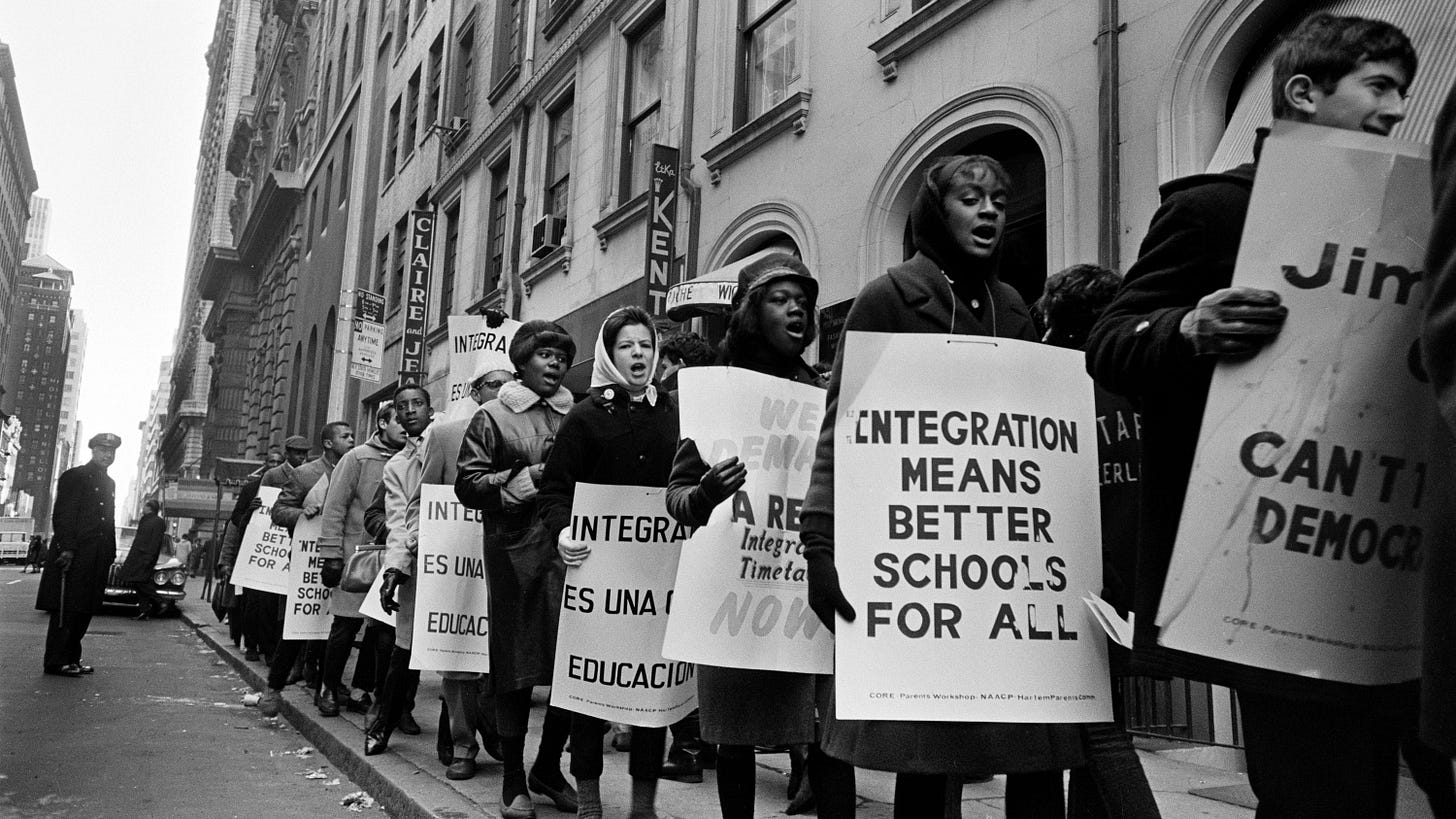
To many, that might sound cynical. But Bell saw himself as a realist. He believed racism was deeply embedded in American life – not because it couldn’t be challenged, but because it wouldn’t be dismantled by good arguments alone. Instead, real change would only come when justice aligned with interest.
And this idea doesn’t just apply to racial justice. It’s shaped how many other movements have won...
When justice becomes everyone’s business
Take the Freedom to Marry campaign in the US. In the early days, the movement talked about ‘gay rights’. But it struggled to gain traction with people who didn’t see themselves reflected in that cause. That changed when the movement shifted to a message of ‘marriage equality’ – and of love, family and the universal desire to belong.
It stopped being about a ‘special interest’ and became about everyone. Suddenly, it was the father who wanted to walk his lesbian daughter down the aisle. The grandmother who wanted to dance at her gay grandson’s wedding. The straight best friend who wanted their friend’s love to be celebrated too.
This wasn’t just about equality. It was about love. It was about shared joy. It was about family. An issue that previously saw polling opposition year after year began to see a U-turn in public sentiment once people understood this was an issue that also affected them.
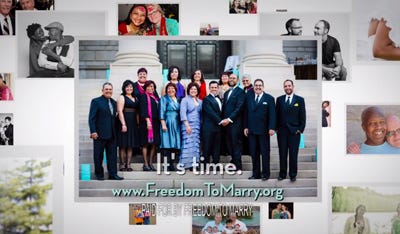
The same goes for women’s equality and the campaign for legal abortion in Ireland. Together For Yes activists moved the conversation away from ‘individual choice’ and towards compassion, care and the idea that someone you love – your sister, daughter, partner, friend – might one day need an abortion. Framed like this, reproductive freedom wasn’t just about individual women who might need an abortion – it was about society.
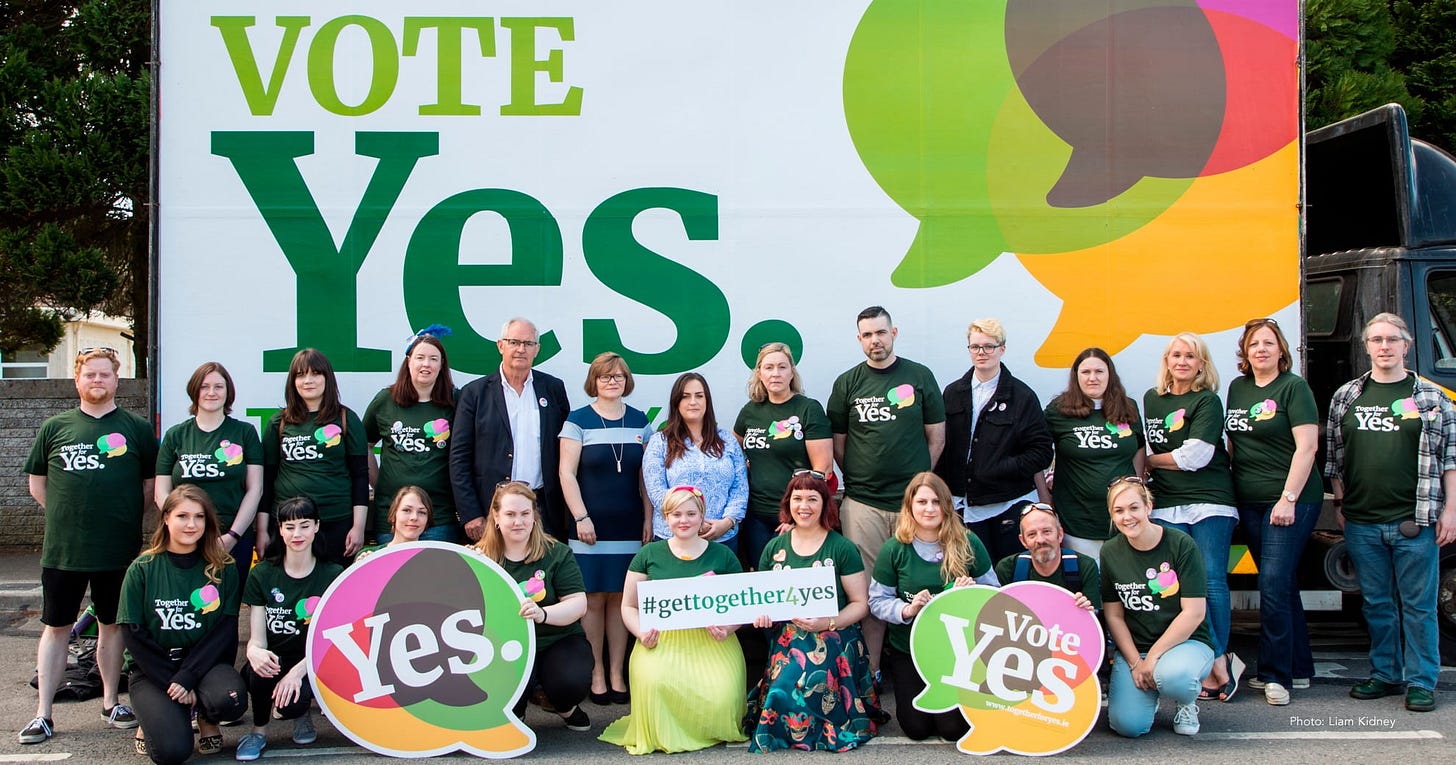
Some scholars who subscribe to the theory of Interest Convergence argue that the rise in anti-racism after Black Lives Matter protests isn’t due to a change in public morality so much as it has suddenly become popular, political and even profitable to be shown to be anti-racist. Because instead of America decrying human rights abuses across the globe, suddenly the globe was protesting human rights abuses in America, negatively affecting its global standing.
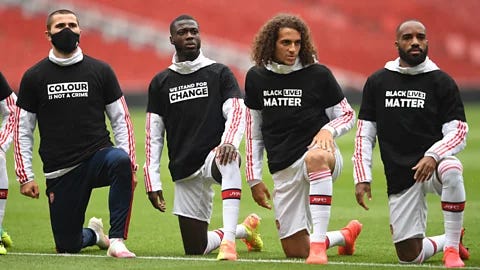
Lessons from the SHAC campaign
The SHAC campaign (Stop Huntingdon Animal Cruelty) offers a powerful example of interest convergence in action. While rooted in fierce moral opposition to the violence inflicted on individuals inside Huntingdon Life Sciences (Europe’s biggest facility that tests on and kills other animals), the campaign also made that violence deeply inconvenient for companies connected to it.
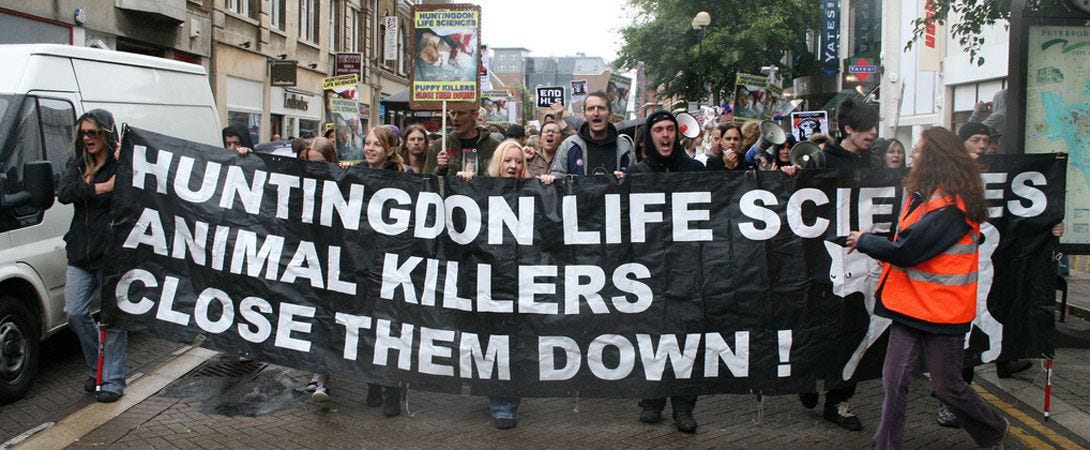
By targeting not just the lab itself but its suppliers, clients, insurers and even financial backers, SHAC turned testing on animals from a hidden injustice into a reputational and economic liability. They mobilised public sympathy through hard-hitting storytelling, but they also shifted the terrain of the fight – making silence and complicity costly. In doing so, they showed how strategic disruption can make justice impossible to ignore.
This strategy is continuing to be used to great effect in our movement. One recent example is the online group MBR Suppliers, a pilot campaign by Project Phoenix that calls on customers and suppliers of MBR Acres (a facility that breeds beagle puppies for testing) to boycott it. More than 30 companies have joined the boycott since it started a year ago. You can stay up to date with the group’s progress, as well as join their strategic online actions here.
What does this mean for animal freedom?
It’s hard to hear, but vital to say: moral arguments alone won’t be enough to win animal freedom. Especially when exploiting other animals is so embedded in the economy.
Most of us in the movement wish that showing people the violence, the cruelty and the resistance of our animal cousins would be enough. That people and politicians would look, see the truth, and bring about change. But decades of experience – and a wealth of social movement research – tell us otherwise.
Unfortunately, most people don’t change their minds or change their actions just because something is wrong. They change when they see how that wrong also hurts them. When they see how a better world for others is also a better world for them. They change when a ‘side issue’ suddenly feels personal.
As a society, we’ve been taught to believe that eating/wearing/hunting other animals is a matter of personal choice. That it doesn’t affect anyone else. But this lie has made it easier for people to disconnect, to justify and to look away.
As a movement, we can show that this issue is not just about fellow animals. It’s about all of us. It’s about all of our best interests, our health, our shared joy, our communities, our future... It’s about creating a world we want the next generation to inherit: a world where we’re taught that the best interests of everyone should be considered – no matter our race, gender, sexuality, ability or species. Not a world where children are taught that domination is normal or that violence is necessary.
The cost of looking away
Animal oppression has changed ourselves and the world for the worse. It devalues life and devastates ecosystems. It fuels pandemics, poisons rivers and pushes families – both human and other animal – into crisis. It cuts us off from fellow animals we might otherwise know, love and care for. It trains us to numb ourselves to pain and pretend it doesn’t exist. It turns acts of love – like the desire to protect others – into awkward exceptions, not the rule.
And perhaps, most cruelly, it makes humans believe we’re free, when in fact we’re not. We’ve been lied to – sold a story that farming animals (and testing on them, confining them in zoos and aquariums, hunting them for fun etc.) is necessary, natural, normal and even nice. That it’s a tradition, a culture, a way of life.
As a movement, we can communicate how we can honour our past without being held hostage by it. That we don’t need to lose our cultures. We just need to evolve them (as cultures naturally always do).
Where our interests meet
There are powerful intersections where the interests of humans and other animals converge, and as a movement, we have a wealth to choose from. Here are just a handful we might want to draw from in our communications, depending on the issue:
Love/Joy: Most humans love other animals. We love seeing them play, living free and being themselves, and hate to see them suffering. We’re wired for empathy – we get happiness from others’ happiness. Most of us want a world where cruelty is behind us and all beings can thrive.
Freedom: We should all have the freedom to be ourselves, to live freely and in line with our values. Taking away the freedom of other animals takes away from what it means to be human/be our authentic selves.
Community: A kinder world for other animals makes life better for all of us. Ending violence helps build safer, more compassionate communities. It means creating a society that values care, fairness and connection – the kind of place most of us want to live in.
Truth: Most people care about the truth and none of us want to be lied to. But powerful industries go to great lengths to hide the reality of how other animals are farmed and killed. Corporate greed is holding us back as a society, keeping us from living in line with our values. We deserve honesty, not spin.
Health (individual and public): Diets centred on plants can help reduce heart disease, cancer, diabetes and obesity. They also reduce the chances of future pandemics by cutting the risk of zoonotic diseases. What’s good for other animals is good for human health too.
Mental health: Farming and killing animals takes a toll on people too. Many workers suffer from PTSD, depression and trauma from the violence they’re exposed to every day. A more compassionate food system protects everyone’s wellbeing – not just other animals’.
Climate: Farming animals is one of the biggest drivers of climate breakdown. Reducing it is one of the most powerful ways we can protect our planet, our communities, and future generations.
Responsibility: When we learn what’s happening to other animals, many of us feel the need to act. Taking responsibility for the world we help create is a sign of strength, not a burden. We can choose to support kindness over cruelty by boycotting violent industries.
Financial: Farming animals is propped up by billions in public subsidies, while we’re left to cover the costs of pollution, illness and climate damage. That money could be used to support healthier food, greener jobs and thriving communities. A plant-based transition would benefit the public, not just corporate profits.
Livelihoods: Many farmers feel trapped in a corporate system that forces them to treat farmed animals as products, not individuals. Switching to plant-based farming would let them put their skills to good use, earn a fair living, and grow food that is kinder to animals, the land and local communities – breathing new life into rural economies built on care instead of killing.
Justice: If we care about fairness – for women, for people of colour, for future generations – then deep down, we already care about the freedom of other animals. Injustice always works the same way: it separates us, treats some lives as worth less, and uses power to control. Standing up for what's right means standing with our animal cousins too.
Legacy: Most of us want to leave the world better than we found it – a place where our children and grandchildren can thrive. Protecting other animals and restoring the natural world is part of that legacy. It’s about choosing compassion over destruction, and being remembered for doing what’s right.
While these intersections won’t be persuasive to everyone, each one has the potential to resonate with a particular segment of the ‘persuadable middle’.
What this means for our movement
It doesn’t mean we stop centring fellow animals; it means we broaden the circle. We can make it clear that animal freedom isn’t a fringe issue – it’s a central one. It touches everything and everyone.
As a movement, we can ask:
What are the leverage points where people’s values already overlap with the world we want to build?
How do we make animal freedom a cause that feels personal, urgent and beneficial to everyone?
What stories can we tell and what futures can we paint that make people want to support our cause and even take action?
The reality is, most people are already with us. Most people love other animals. Most people hate cruelty. Most people want to live in a kind world. They’ve just been taught that these things are incompatible.
It’s our job to show that they’re not.
Project Phoenix is working with community organisers and activists to build a broad-based movement that helps the ‘persuadable middle’ see that animal freedom is an issue that affects all of us, and taking some form of action means living in line with our values.
Please reach out to us if you’d like to get involved: hello@project-phoenix.org.uk




Instead of saying "just," which tends to trivialize, would be better to say "solely. For example:
"As a movement, we can show that this issue is not [solely] about fellow animals. It’s about all of us."